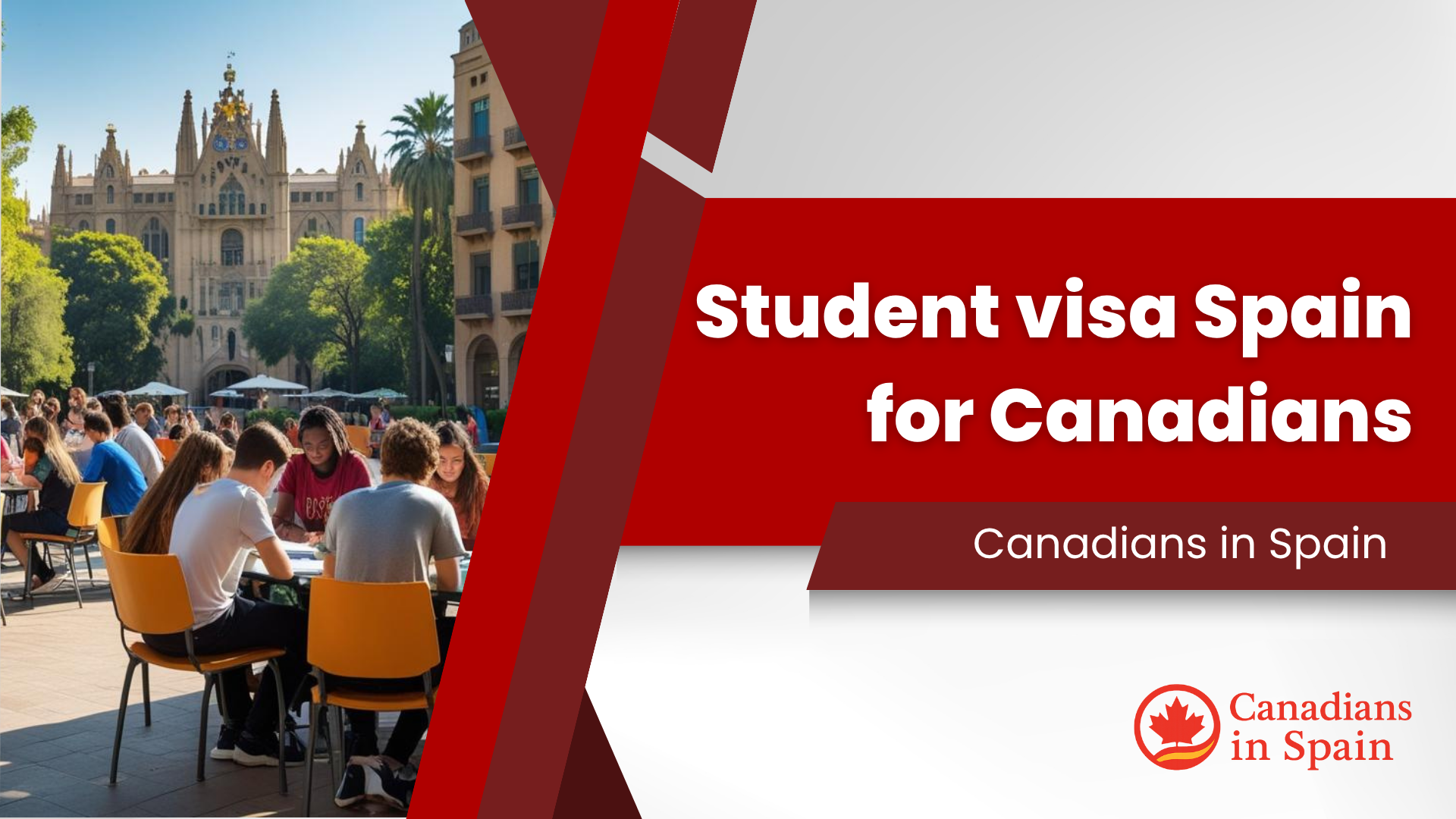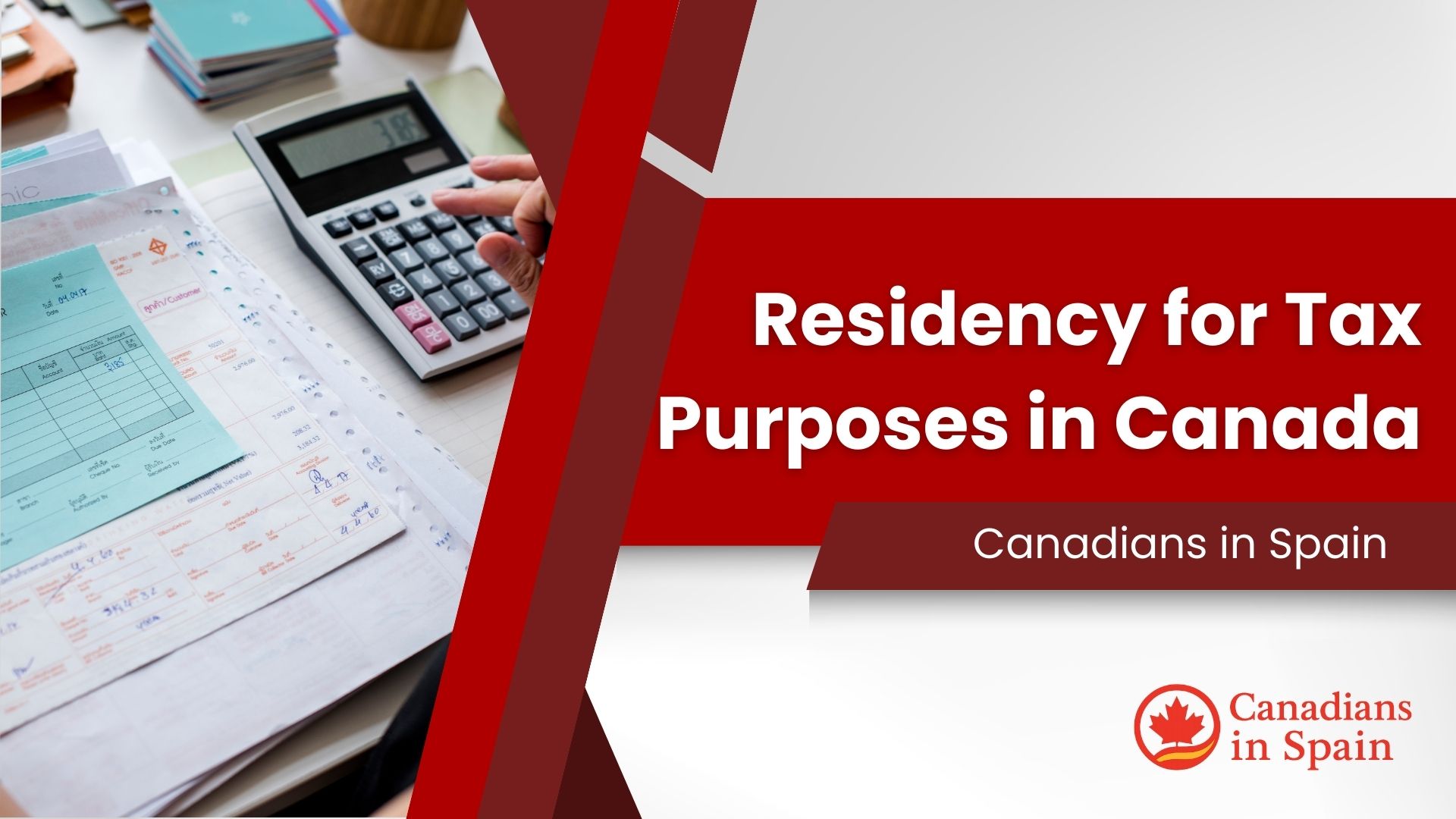The Student Visa in Spain: A Complete and Free Guide for Canadian Applicants
Studying in Spain offers a unique opportunity to immerse yourself in a vibrant culture, master a global language, and gain a world-class education. For Canadians planning to study for more than 90 days, securing a student visa is the essential first step. This process, while detailed, is entirely manageable with the right preparation. The student visa in Spain is technically an “authorization for a stay for studies” (estancia por estudios), and it serves as your gateway to living and learning in this incredible country.
This comprehensive guide is designed specifically for you, the Canadian applicant. We will walk you through every stage of the process, from understanding the core requirements and gathering your documents in Canada, to the final steps you’ll take upon arriving in Spain. Whether you’re enrolling in a university master’s program, a semester abroad, or a full-year language course, this article will provide the clarity you need to navigate your application with confidence. Let’s break down how to successfully obtain your student visa in Spain for Canadians.
What Exactly is a Spanish Student Visa?
Before diving into the paperwork, it’s crucial to understand what this visa is and what it allows. Unlike a work or residency visa, the student visa grants you a temporary stay (estancia) in Spain for the primary purpose of studying. It is not considered legal residency in the same way, which has implications for long-term residency and citizenship paths, though it can often be modified into a work permit later under certain conditions.
This visa is mandatory for any Canadian citizen planning to enroll in an accredited educational program in Spain for a period longer than three months. This includes:
- University degrees (Bachelor’s, Master’s, PhD).
- Full-time language courses at an accredited institution.
- Vocational training programs.
- Research or training activities.
- Student exchange programs.
The duration of your initial student visa in Spain will be tied directly to the length of your academic program. If your program is for one full academic year, your authorization will typically cover that period. If it’s longer, you will renew your authorization from within Spain each year. The student visa is your key to not only attending your classes but also to obtaining your TIE (Tarjeta de Identidad de Extranjero), the physical ID card that will be your official identification during your time in Spain.
The Essential Document Checklist for Your Student Visa in Spain
This is the most critical part of your application. Meticulous preparation is key. You must gather every document on this list, ensuring it meets the specific requirements of the Spanish Consulate in Canada.
1. National Visa Application Form
You must complete and sign the official national visa application form. This can be downloaded directly from the website of the Spanish Consulate with jurisdiction over your province. Fill it out clearly and accurately.
2. Passport & Photos
You will need your original passport, which must be valid for the entire duration of your intended stay in Spain. It must also have at least two blank pages. You will also need recent, passport-sized color photographs with a plain white background.
3. Letter of Acceptance (Carta de Aceptación)
This is the cornerstone of your application. You must provide the official letter of acceptance from your accredited Spanish educational institution. This letter must detail the name of the program, the start and end dates of your studies, and proof that you have paid the tuition fees in full.
4. Proof of Financial Means
You must prove that you have sufficient funds to support yourself for the entire duration of your stay. The minimum amount required is 100% of Spain’s monthly IPREM (Indicador Público de Renta de Efectos Múltiples). As the IPREM can change annually, you must check the current value. For example, if the monthly IPREM is €600, for a 12-month program you would need to prove access to at least €7,200. Acceptable forms of proof for Canadians include:
- Recent bank statements from a Canadian bank showing the required balance.
- A notarized letter from your parents or legal guardians assuming full financial responsibility, accompanied by their bank statements.
- Proof of a scholarship or student loan that covers living expenses.
5. Proof of Health Insurance
You must have a private health insurance policy from an insurer authorized to operate in Spain. This is a non-negotiable requirement. The policy must provide full coverage in Spain, have no co-payments or deductibles, include repatriation coverage, and be valid for the entire duration of your stay.
6. Criminal Record Check (for stays over 180 days)
If your program is longer than six months, you must provide a Police Criminal Record Check issued by the RCMP. Crucially, this document must then be authenticated and legalized. Since Canada joined the Hague Apostille Convention in 2024, this means you must get an Apostille for the document. After it’s apostilled, it must be officially translated into Spanish by a sworn translator (traductor jurado).
7. Medical Certificate (for stays over 180 days)
You will also need a recent medical certificate issued by your doctor. This certificate must have a very specific wording, stating: “This medical certificate attests that Mr./Ms. [Your Name] does not suffer from any of the diseases that may have serious public health repercussions in accordance with the provisions of the International Health Regulations of 2005.” This must also be officially translated into Spanish.
The Application Process: A Step-by-Step Walkthrough
Once your document file is complete, you can begin the formal application process.
- Find Your Consulate: Canadians must apply at the Spanish Consulate that has jurisdiction over their province of residence. There are consulates in Toronto, Montreal, and an Embassy in Ottawa. Check their official websites to confirm which one serves your area.
- Book Your Appointment: You must book a Cita Previa (appointment) through the consulate’s official online booking system. These appointments can fill up quickly, especially during peak student season, so book well in advance.
- Submit Your Application: Attend your appointment in person with all your original documents and photocopies. You will pay the visa processing fee at this time. The consular staff will review your file and accept it for processing.
- Await a Decision: The processing time for a student visa in Spain for Canadians can vary, but it typically takes between 4 to 8 weeks. You can usually track the status of your application online.
- Visa Approval & Collection: Once approved, the consulate will notify you to come and collect your passport, which will now have the visa sticker inside.
- Arriving in Spain & The TIE: The visa allows you to enter Spain. Within 30 days of your arrival, you must begin the process to get your TIE (physical residency card) at a local police station.
Can You Work While Studying in Spain?
Yes, it is possible for students to work while studying in Spain, but there are rules. You are generally permitted to work up to 30 hours per week, provided that the work does not interfere with your studies. The employment must be related to your field of study, and your employer will need to obtain the necessary work authorization for you. It is not an automatic right, but an option that can be pursued once you are settled in Spain.
Frequently Asked Questions
Can I apply for the student visa from within Spain?
Generally, no. As a Canadian citizen, you must apply for your initial long-stay student visa from the Spanish consulate in Canada before you travel. Renewals, however, are done from within Spain.
How far in advance should I start the process?
It is highly recommended to start the entire process at least 3–4 months before your intended travel date. Gathering documents, getting the apostille, and waiting for the visa processing all take time.
Do I need a sworn translator for my documents?
Yes, for official documents like the criminal record check and medical certificate, you must use a “traductor jurado” (sworn translator) officially recognized by the Spanish government.
Can my family come with me on a student visa in Spain?
Yes, it is possible to bring dependents (spouse, children) with you. However, you will need to prove significantly higher financial means to support them and they will need to submit their own applications as your dependents.
Need Help with Your Student Visa Application?
The application for the student visa in Spain for Canadians requires meticulous preparation of documents. To ensure your file is perfect and to navigate the process with confidence, our trusted professional partner is here to help.




